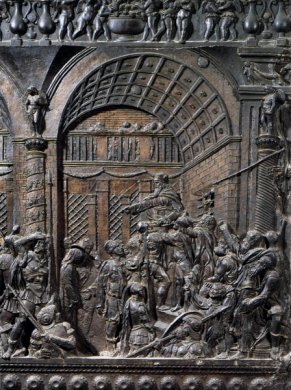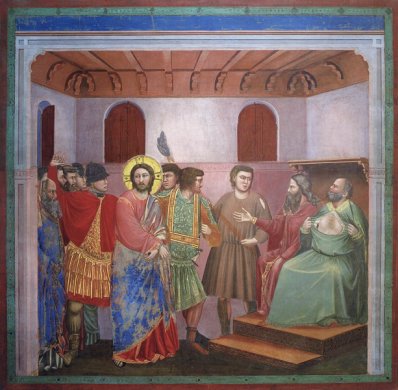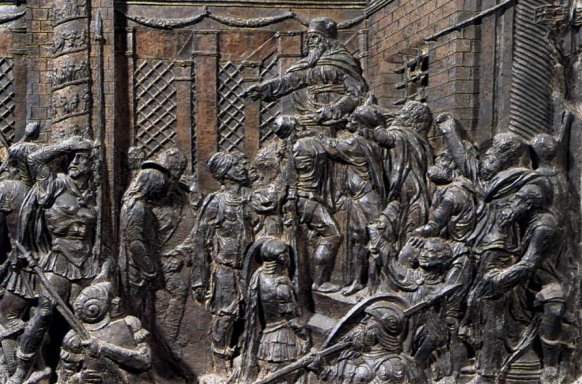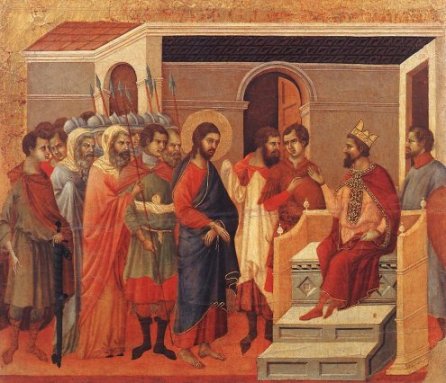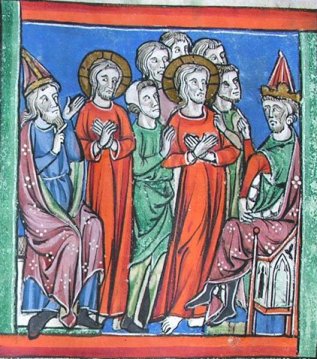|
The Passion of Christ |
|
|
Christ before the Sanhedrin and Herod. |
|
|
Before the Sanhedrin Let's leave Durer and Duccio to one side for the moment and choose two different artists. |
|
|
|
|
|
Of course, the Donatello bronze is a tour-de-force of perspective, and reminds everyone of that Massaccio Trinity in Santa Maria Novella just down the road. The characterisation is extraordinary too. The scene is so busy it is difficult to work out what is going on, and, indeed where Christ is. This enlarged version should help: |
|
|
|
|
|
Is that St. Peter on the right, in front of the miniature version of
Trajan's Column? The hand gesture is typical of Peter, though the
clothing doesn't seem quite right. Giotto paints the moment where Caiaphas 'rends his clothes', mentioned by Mark and Matthew: 'Then the high priest rent his clothes, saying, He hath spoken blasphemy; what further need have we of witnesses? behold, now ye have heard his blasphemy.' Keriah, Rending of clothing signifying bereavement, remains a Jewish tradition to this day, but Caiaphas does it because of his outrage at what he considers Christ's blasphemy. Is this an Old Testament reference? There is much clothes-rending in the OT; perhaps the closest parallel comes from Isaiah. Sennacherib sends a messenger with an insulting message to King Hezekiah as Jerusalem is under siege: And it came to pass, when king Hezekiah heard it, that he rent his clothes, and covered himself with sackcloth, and went into the house of the LORD. Christ before Herod Caiaphas now sends Christ to Pilate, and I'll look at that encounter in detail on the next page. According to Luke, Christ appears before Pilate twice. When he hears that he is a Galilean, Pilate sends him to King Herod. Christ before Herod is not painted that often; here is the ever-reliable Duccio, and a late thirteenth/early fourteenth century miniature from The Canticles, Hymns and Passion of Christ from the Abbey of St. Augustine, Canterbury. The miniature cleverly shows Pilate sending Christ on the left, and Christ before Herod on the right. Herod asks Christ to show him a miracle, but in both versions Christ is clearly not going to oblige. |
|
|
|
|
